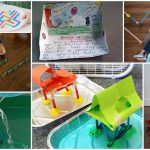Final exams and major projects require students to integrate an entire semester’s worth of learning into comprehensive assessments. Thorough preparation and intentional study strategies in the weeks leading up are essential to demonstrate your abilities under the pressure of these cumulative evaluations. Here we explore best practices to help you adequately prepare for college final exams and finish projects successfully.
Create a Prep Calendar
Planning a study schedule prevents last minute cramming. Identify:
- Exam and project dates – Note all final assessments and deadlines.
- Topics covered – Review class materials and notes to make a list of key topics.
- Study timeline – Work backwards from exams to map out daily/weekly review goals.
- Practice test dates – Schedule any practice exams or project draft deadlines.
- Free days – Block off pre-exam days for rest and last minute review.
Mark prep tasks and goals in a calendar app or printable study planner. Having defined objectives keeps you on track.
Make Review Materials
Condensing course information into streamlined review sheets makes studying more efficient. Useful materials include:
- Summary sheets – Extract key facts, formulas, concepts from notes onto pages for each exam topic.
- Outline – Organize topics and subtopics into overview documents a couple pages max.
- Flashcards – Make digital or paper cards for definitions, names, dates, formulas, steps in processes.
- Practice problems – Write out sample questions and practice worked solutions for problem-based exams.
- Mind maps – Draw concept maps linking key ideas visually on a single page.
Customized review materials tailored to your professors’ course focus helps hone in on crucial areas.
Practice Retrieval
Testing your ability to recall and apply concepts engages more productive study methods than just rereading notes. Useful techniques include:
- Self-quizzing – Close notes and textbooks to quiz your knowledge and fill in gaps.
- Exam format – Take practice tests if available or create sample questions mimicking real exams.
- Talk it through – Explain key concepts aloud to yourself or a friend from memory as if teaching it.
- Apply your knowledge – Work through actual problems, case studies, and essay prompts as preparation.
- Cross-topic questions – Generate questions combining ideas from different units and notes to mimic comprehensive exams.
Retrieval practice improves long-term retention and ability to apply material according to cognitive science studies.
Review with Classmates
Collaborating introduces new insights and deepens everyone’s mastery. Effective peer strategies include:
- Group quizzing – Take turns asking each other questions verbally or using digital flashcard apps.
- Learn together – Recreate diagrams, explain concepts together at whiteboards, solve practice problems as a team.
- Peer teach – Have each person prepare 5 minute micro-lessons on topics to teach their explanations to the group.
- Compare notes – Discuss each other’s summary sheets and notes to find missing points.
- Critique work – Review draft projects and writing assignments to improve quality before submitting.
Working through material with peers provides teaching and learning benefits.
Foster Quality Sleep
Sleep is when memory solidifies. Establish habits that promote restorative shut eye before exams:
- Maintain routines – Keep regular sleep/wake times including on weekends to regulate your circadian rhythm.
- Limit naps – Daytime naps exceeding 20-30 minutes can make it hard to sleep at night.
- Avoid evening studying – Don’t do intensive studying past 8 pm so mind can unwind beforehand.
- Limit late night screen time – Screens suppress melatonin production. Stop using devices 1-2 hours before bed.
- Relax before bed – Do light reading or meditation to transition into sleep versus high stress activities.
- Eliminate disruptions – Use blackout curtains, a fan, or sleep sounds if needed to block disturbances and sleep soundly through the night.
Quality rest equates to higher exam performance. Don’t skimp on sleep.
Make a Study Plan for Projects
For major projects, break required tasks into milestones and schedule completion timelines. Useful steps include:
- List project parts – Separate into manageable pieces like research, writing sections, creating visuals, compilation, revisions.
- Estimate time per piece – Realistically gauge how long each component takes to avoid underplanning. Build in buffers.
- Schedule work sessions – Block off project tasks over days/weeks when you’ll dedicate focused time.
- Build progress checks – Add review deadlines every few days to evaluate progress and get instructor feedback.
- Factor in interruptions – Reduce daily task plans knowing realistically you’ll have other commitments.
Thorough planning and pacing workflow positions you to produce quality culminating work.
Preparing thoroughly for college finals and big projects is demanding. However, adopting intentional habits reduces anxiety and positions you to demonstrate your full abilities when it matters most. The effort invested pays off in achievements that reflect your true potential.

















